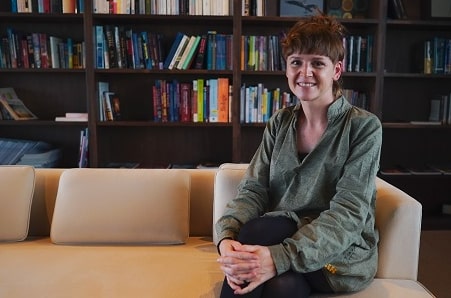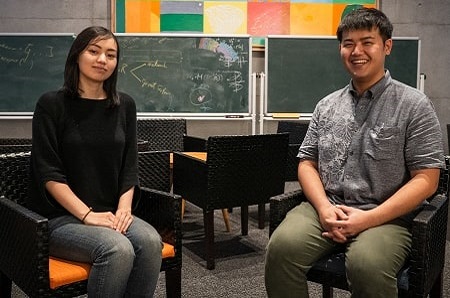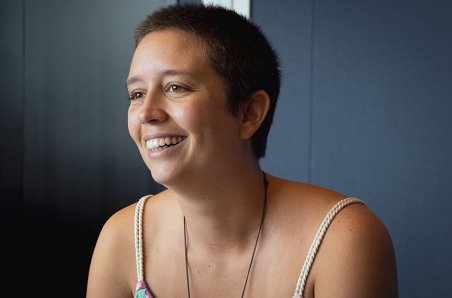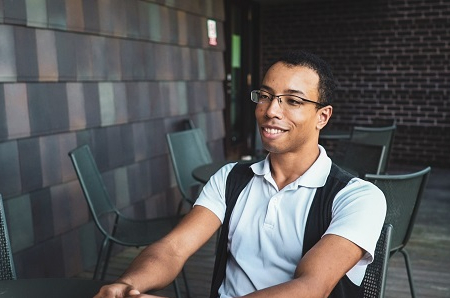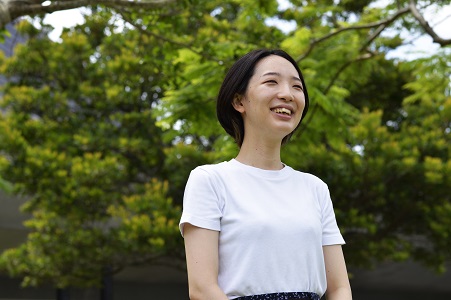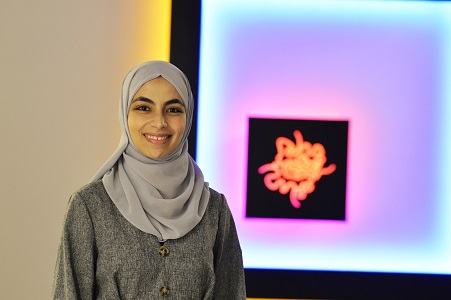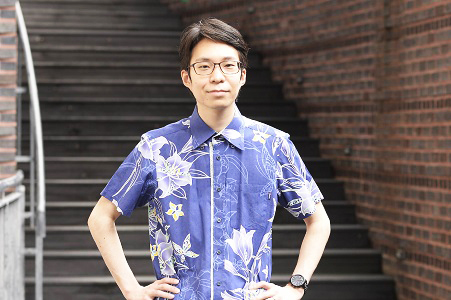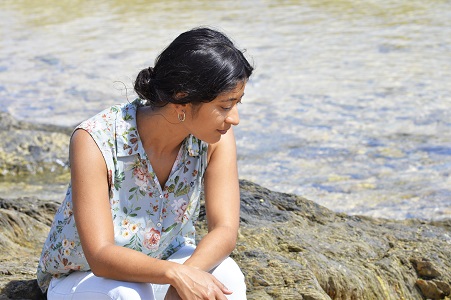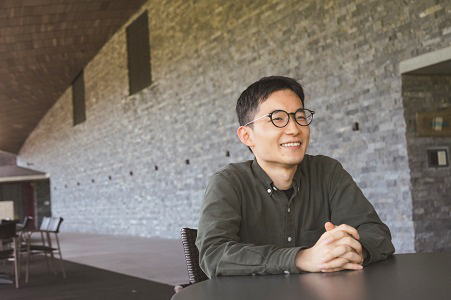Students
-
Nadine Wirkuttis
Nationality: Germany
Unit: Cognitive Neurorobotics Research Unit -
Minato Miyake & Dan Kozome
Nationality: Japan
Research Internship -
Lorena Andreoli
Nationality: Brazil
Unit: Memory Research Unit
-
Dvyne Issei Nosaka
Nationality: Japan
Unit: Neurobiology Research Unit -
Nanami Tomoda
Nationality: Japan
Unit: Femtosecond Spectroscopy Unit
Year: 1st year in PhD -
Ilhem Nadia Rabehi
Nationality: Algeria
Unit: Energy Materials and Surface Sciences Unit
Year: 2nd year in PhD
-
Morihiro Ohta
Nationality: Japan
Unit: Experimental Quantum Information Physics
Year: 3rd year in PhD
-
Aditi Pophale
Nationality: India
Unit: Computational Neuroethology Unit
Year: 4th year in PhD
-
Kojiro Suda
Nationality: Japan
Unit: Membranology Unit
Year: 5th year in PhD
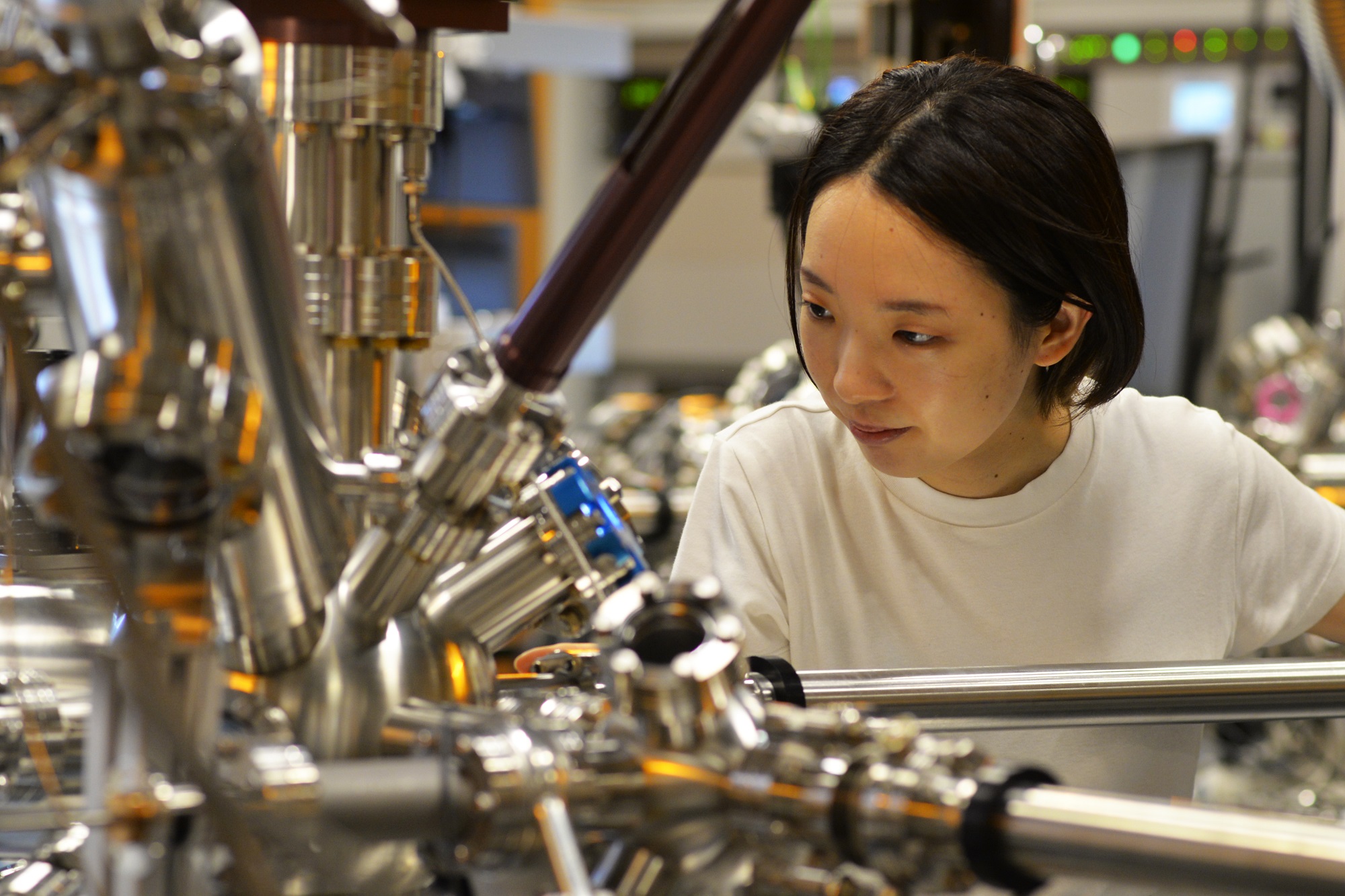
Nanami Tomoda
Nationality
Japan
Unit
Year
1st year in PhD
Why did you choose OIST as your PhD journey? How did you prepare the admission process? How was the interview?
The reason I chose OIST is that I was attracted to the research environment during the six-month internship at OIST before admission. In a field of research that requires experiments, I believe that the laboratory facilities determine the quality of the research. Through my internship, I felt that I could achieve world-class research by taking advantage of the strengths of OIST's experimental units, which led me to aspire to submit the applications. I took a six-month leave of absence from the university I was enrolled in at the time to participate in the internship, but it turned out a great opportunity to think of my future because I was thinking about deciding during this period whether to go on to a Ph.D. program or just do master’s degree at another university.
Regarding the OIST application process, I finished it during the internship period, during which I had the opportunity to have my application documents reviewed by OIST students and practiced interviews with fellow interns. During the actual interview, I responded clearly to questions that are commonly asked, and for other research-related topics, I could discuss them with the professor and receive their guidance for the knowledge I was unfamiliar with. Some of the interviews were so exciting that we lost track of time and went beyond the time.
What did you gain from lab rotation experience?
What I gained from the lab rotations can be summarized as follows: "the ability to produce results within four months," "acquisition of experimental techniques and analytical methods out-of-field," and "adaptability to different research styles." For instance, in the first rotation with the Okada Unit, I did experiments to present the outcomes of the rotation work through poster presentations at conferences organized by the unit. Additionally, under the umbrella of "acquisition of experimental techniques and analytical methods out-of-field," I worked on graphene device fabrication, which is out-of-field for me within the Narita Unit. This allowed me to learn techniques such as lithography, deposition, and etching, which can be applied to future research. Regarding research styles, while Dani Unit followed a collaborative approach with multiple students and postdocs working on a single theme, Okada Unit emphasized individual ownership of research themes. This significant difference between units enabled me to assess compatibility and adaptability over four months, which is one of the strengths of OIST's rotation system.
How is the workload to go through both lab rotations and taking classes at the same time during the 1st year?
Simultaneously conducting unfamiliar lab work and coursework can be quite challenging. In particular, as bachelor’s students, we are required to take twice the number of course units compared to master's degree students. This results in a higher workload, and sometimes I dedicate a significant portion of my weekends to finishing course assignments. However, there are unique advantages to the small class sizes at OIST. For example, when faced with difficulties in understanding assignments, I could openly ask questions about the problem during class and do discussions that led to deeper comprehension. Additionally, as my research primarily focuses on experimental work, establishing connections with students and professors from theoretical units with whom I would not typically meet proved beneficial for my future research project.
How is student accommodation and life in Okinawa in general?
OIST provides students with adequately spacious rooms, and I have the impression that some students choose to work from home. In the vicinity, amenities such as a gym, a small supermarket, and community spaces ensure comprehensive support beyond academics and research. The presence of fellow students and friends living nearby also creates an excellent environment for casual interactions. As for living in Okinawa, it is exceedingly comfortable for someone like me who does not like the cold environment. I have received guidance on local events and recommended places in Okinawa from local shopkeepers who have been kind enough to assist me and senior OIST students. This has contributed to a fulfilling lifestyle.
How is work-life balance?
I personally enjoy doing experiments, so there are times when I visit the laboratory during evenings and weekends. However, I am not compelled or pressured by the professor and other unit members to do so. I live with a partner who is also an OIST student, so I make a conscious effort to prioritize and cherish dinner times and holidays. Talking with other students, it seems they are pursuing research in a style that suits them. Depending on the unit, fortunately, the COVID-19 situation has led to the establishment of a remote environment for conducting some analyses and experiments, allowing for a more flexible research approach. As a result, it has become easier to maintain a balance between research and personal life.
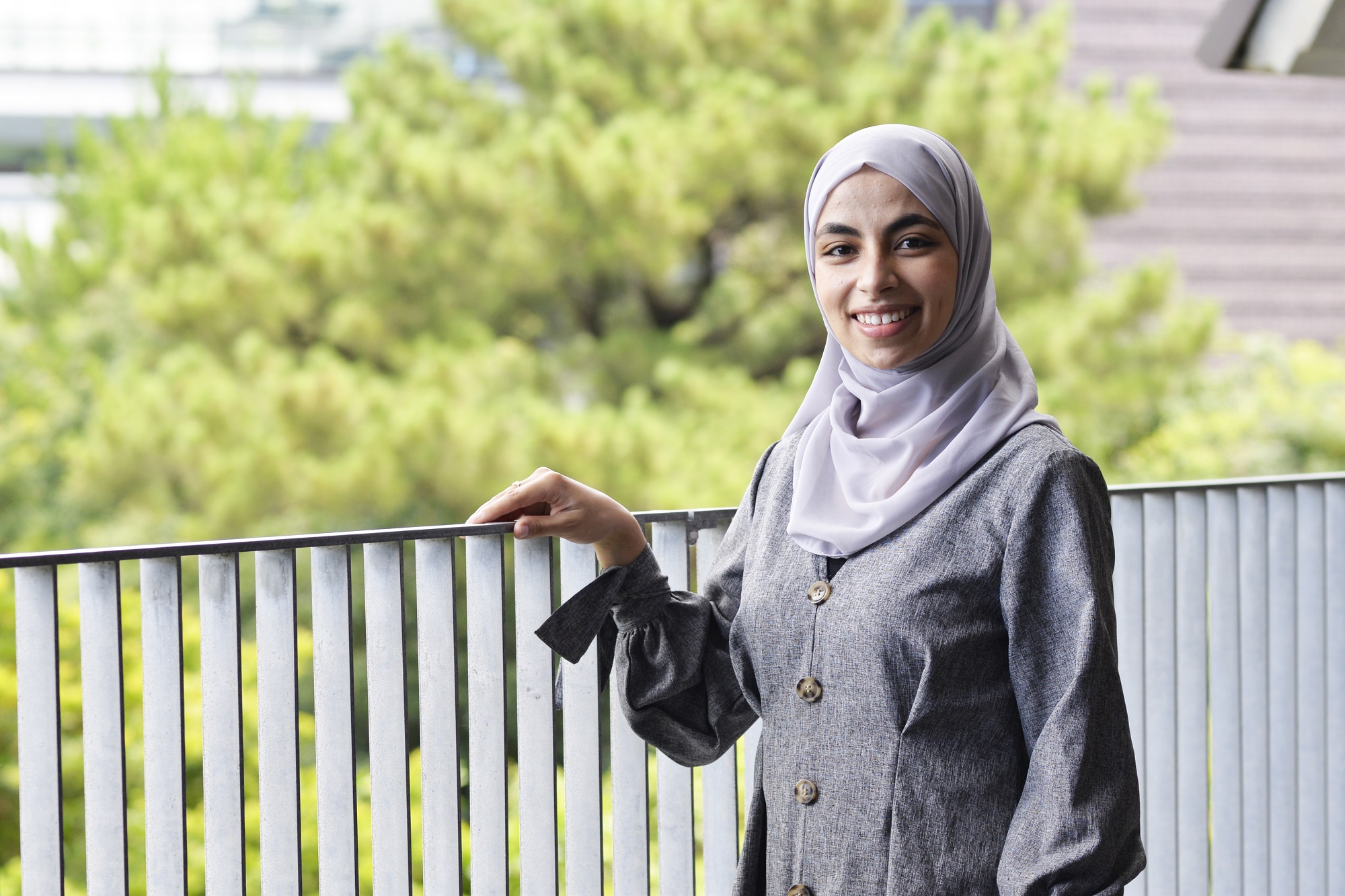
Ilham Nadia Rabehi
Nationality
Algeria
Unit
Energy Materials and Surface Sciences Unit
Year
2nd year in PhD
What did you consider when choosing your lab?
Before enrolling at OIST, during my master’s, I got the chance to see and assess the impact of solar systems in improving people’s lives in African rural areas. This experience motivated me to deepen my knowledge about solar cells. Hence, I applied to OIST aiming to join the energy material and surface sciences unit (Qi unit). During the lab rotations, I explored various interesting research areas. However, my initial aspiration led me to ultimately choose the Qi Unit, and I consider myself fortunate to have been able to join their team. Now I am enjoying making and characterizing perovskite solar cells.
Can you tell us about your research topic? How did you decide on your thesis question?
My research focuses on the study of perovskite solar cells (PSCs) stability, third-generation solar cells known for their promising performance and cost-effectiveness. While PSCs offer great potential, their low stability has limited their commercialization. Recognizing this opportunity, my PI and colleagues encouraged me to focus my project on the stability aspect, using the lab facilities available in our unit. So, I started to read about the topic and gradually built my knowledge. Once I felt confident, I took the necessary pieces of training and drafted the proposal.
How was the thesis proposal examination conducted during the 2nd year?
Despite my initial apprehension about the difficulty of writing a thesis proposal, the process of drafting and reviewing it went smoothly. I was concerned about my ability to complete it successfully, but with the guidance and support of my group members, I made progress incrementally and managed to finish within the designated timeframe. Currently, I am preparing for the proposal defense presentation. While a sense of nervousness lingers, I remain hopeful that everything will go well and yield positive results.
How is your life in Okinawa?
The OIST community is widely diverse, where you do not feel like a stranger, different, or judged because here (in OIST) most people are open-minded. Also, the fact that OIST provides strong support covering various aspects like financial, academic, and nonacademic matters makes life easier and more convenient for students who do not speak Japanese. Additionally, Okinawa is a beautiful and very safe place, where fish and seafood are widely available which gives me options even with the food restrictions I have.
How is work-life balance?
One of the valuable pieces of advice I received from the Postdoc supervising me here in OIST is: “Plan your experiments well, this will make you save a lot of time, resources, and effort.” Indeed, in the beginning, I was not able to find the right work-life balance, however with time, I figured out that it is about planning and time management (which is, by the way in my opinion, a wonderful skill that will be automatically developed during the Ph.D. journey in OIST). Currently, I have more time to enjoy the beauty of Okinawa and spend time together with friends.
Morihiro Ohta
Nationality
Japan
Unit
Experimental Quantum Information Physics
Year
3rd Year in PhD
Can you tell us about your research topic?
Our research group is developing quantum microwave devices using impurity spins in gem crystals, such as diamond and ruby, for applications in quantum information technology, including quantum computers. In particular, I am studying impurity spins in diamonds at millikelvin temperatures and their use in spin-maser amplification and oscillation.
How much flexibility do you have to conduct your research?
My research unit is Hiroki Takahashi Unit, but my research is conducted in the STG-Kubo Group (as known as the Hybrid Quantum Device Team). Kubo Group has three major projects, one of which is spin maser research. In the spin maser team, there is myself and one other postdoc. Each of us has our own research theme, but we share the same dilution refrigerator for experiments, so the three of us discuss with our supervisor, Dr. Kubo, to decide on the direction of the experiments and proceed with the research.
What are some helpful research support or resources available at OIST?
In my day-to-day research life, I get very valuable advice and support from my supervisor and the same group of postdoc and students. The other useful research assistance available at OIST that comes to mind is the engineering section. They can fabricate resonators and jigs for my research on campus, and I sometimes consult with them from the design stage.
Congratulations on your JSPS fellowship reception! Can you tell us more about the grant and also the process to apply?
JSPS Fellowship (Gakushin) is Japan's leading fellowship for Ph.D. students and young postdoctoral fellows and is the common name for JSPS Research Fellowship for Young Scientists. DC1/DC2 classifications for Ph.D. students receive a monthly stipend of 200,000 yen (living expenses) and an annual research grant of around 1 million yen. OIST provides a similar level of living expenses support, and the unit has a generous research budget, so someone may think there is little merit in applying for JSPS Fellowship. Still, I believe that the experience of putting your research plan into an application will be precious in your future research life. When I wrote my application, I started writing in March and had my supervisor revise my first draft in April. After that, I received comments mainly from my seniors and friends in OIST and improved it until just before the submission deadline.
It seems you are actively connected with local communities. Can you tell us more about it?
I am from Nago City, Okinawa. After graduating from Nago High School, I went on to the Faculty of Science at the University of the Ryukyus and stayed there for my master's degree. I then entered OIST, so I have never lived outside the main island of Okinawa, let alone overseas, since I was born. Although I am not very active at OIST because of the Covid-19 situation, I occasionally get together with OIST students who grew up in Okinawa for dinner under the name of "OIST Okinawa Kenjin-Kai." In addition, with volunteer students from OIST and the University of the Ryukyus, we have established the "Okinawan Young Scientists Community" to promote exchange among graduate students in Okinawa Prefecture. We hold social gatherings several times a year.
How is work-life balance?
Since we are experimental scientists, we cannot work where and when we want, but we are not stuck in the lab 24/7, either. Especially in our case, once we set up the experimental system and start running the dilution refrigerator, all we have to do is run the code, and we can make measurements. Basically, we prepare for measurements during the daytime, such as writing the experimental code and adjusting the measuring instruments. The actual measurements are done at night or on weekends, so I think it is easy to maintain a good rhythm in our daily life.
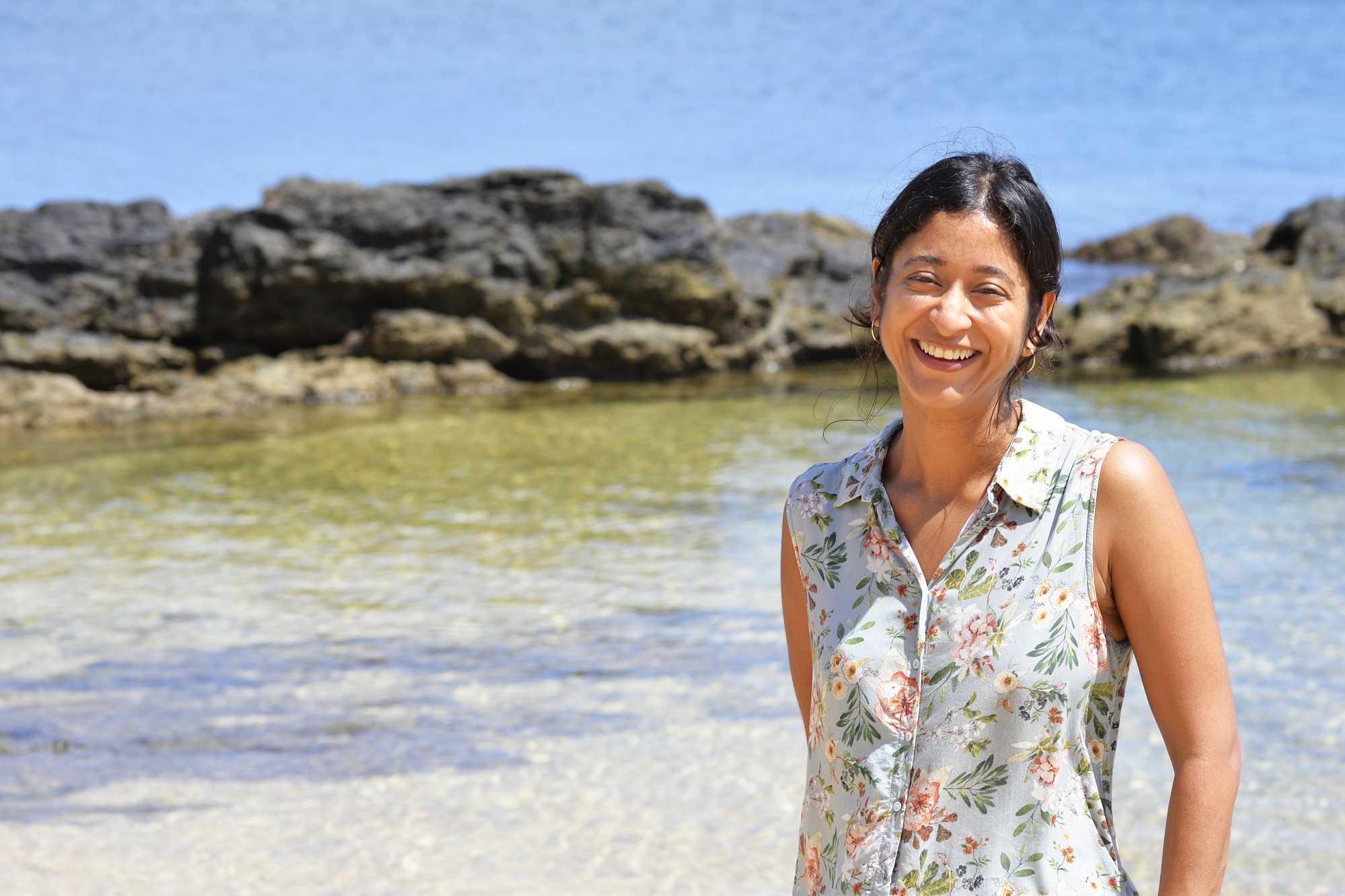
Aditi Pophale
Nationality
India
Unit
Computational Neuroethology Unit
Year
4th year in PhD
Can you tell us about your research? How is your workload compared to previous years?
My research topic focuses on the behavior, neural correlates and function of “active” sleep in octopuses. It explores the unique skin patterns and brain activity that octopuses exhibit periodically during sleep. As a fourth-year student, my workload has evolved significantly since my third year. In the initial stages, I laid the groundwork with literature review, pilot experiments and research proposal development. Now, in my fourth year, I am focused more on data collection, analysis, and synthesis. My workload has expanded, reflecting the progression of my research and the depth of my investigations.
What are some challenges of working towards your thesis?
A notable challenge is maintaining focus and motivation throughout a long-term research project. Balancing the demands of data collection, analysis, and writing while addressing unexpected research obstacles requires perseverance. The seasonal availability of the animals I study necessitates careful planning and adaptability to align data collection with their natural cycles. Furthermore, since these animals have not been extensively studied, there were many details to figure out before commencing my research, requiring iterative exploration and problem-solving. In the meantime, my paper as the first author has been published by Nature and this is based on my research during the period of my lab rotation. It has been such an exciting time for all of us in the unit and surely it has become a great opportunity to step further.
What kind of assistance or guidance do you receive from your supervisor, co-supervisor, or mentor?
I am grateful for the valuable assistance and guidance I receive from my supervisor and other members of my lab, including post-docs, technicians and students. Their expertise and constructive feedback have been instrumental in refining research objectives and in creating the tools and systems required to execute my research. Regular meetings and open communication allow for productive discussions on challenges and potential solutions. Their mentorship has played a pivotal role in shaping the direction of my research and ensuring its success.
Any support you receive for professional and career development?
As my PhD journey nears its conclusion, the support I have received for professional and career development has been instrumental in helping me plan for the next phase of my journey. The university's dedicated services have helped me navigate the job market and strategically plan my career path. Through one-on-one counseling I have been guided in refining my job search strategies, crafting compelling resumes and cover letters, and honing my interview skills. This comprehensive support has empowered me to confidently pursue new opportunities and bridge the gap between my PhD experience and the professional realm.
How is work-life balance?
As my PhD journey progresses, maintaining a healthy work-life balance has taken on increasing importance. I live off campus, which helps me separate work from life and immerse myself in the Okinawan community outside OIST. In my spare time, I fully immerse myself in the awe-inspiring beauty of Okinawa. I venture out on invigorating runs and hikes along picturesque forest trails. Exploring the unique marine life through snorkeling, diving, and even whale watching during the winter months brings me immense joy and serves as a wellspring of inspiration. Engaging in these outdoor pursuits not only keeps me physically active but also nourishes my creativity and passion for discovery.
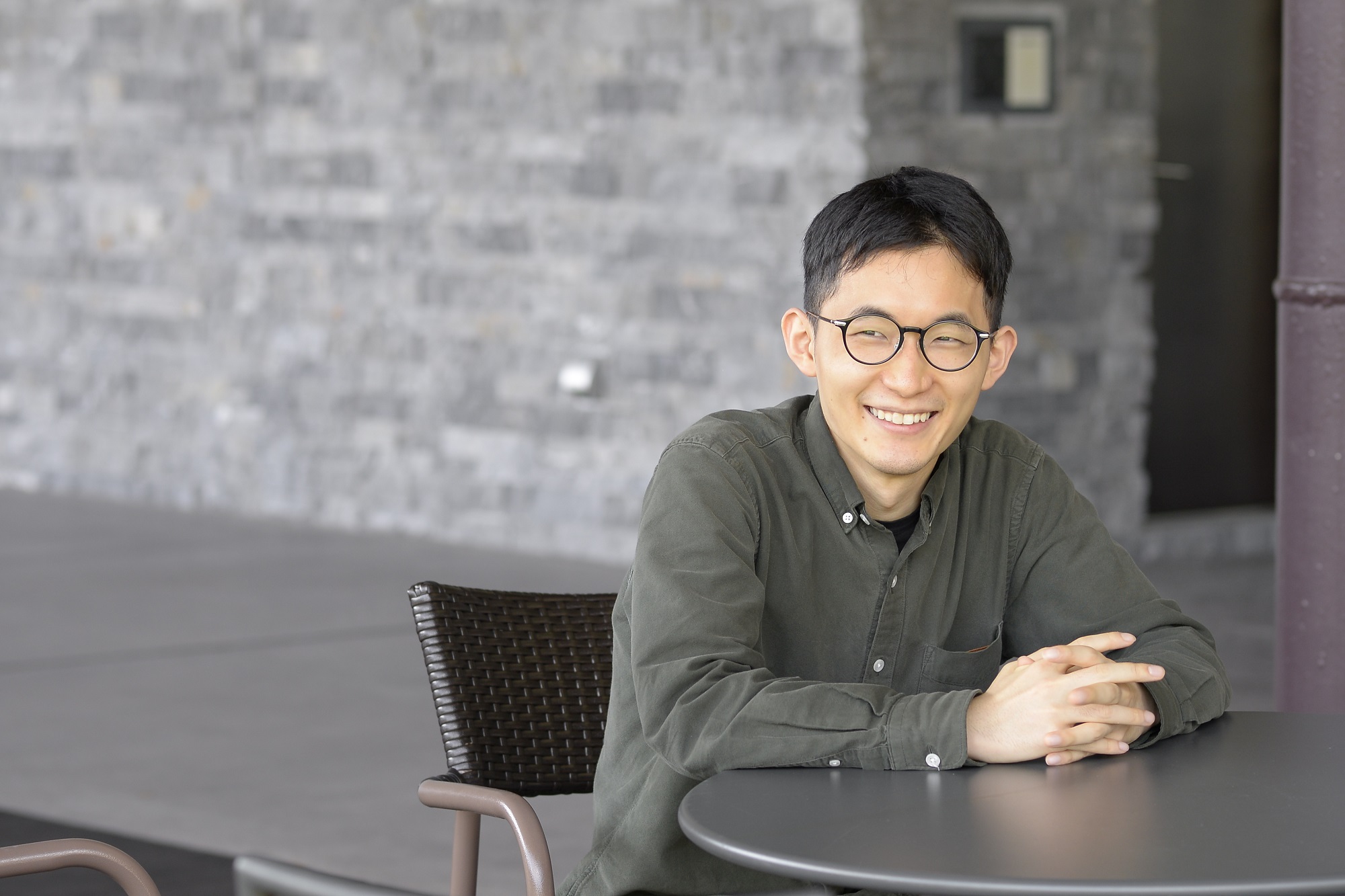
Kojiro Suda
Nationality
Japan
Unit
Year
5th Year in PhD
Can you tell us about your research topic?
I am studying cellular senescence induced by plasma membrane damage with the aim of contributing to the prevention of aging and the extension of healthy lifespan. The plasma membrane is a biological membrane that separates the inside and outside of cells and can be damaged under various conditions. Recently, we have found that cellular senescence is induced upon the plasma membrane damage, and we are investigating the mechanisms underlying cellular senescence induction, using molecular biology experiments and live cell imaging.
Have there been any setbacks with your thesis research, and if so, how did you overcome them?
Fortunately, I have not faced any major setbacks that were insurmountable. However, I have encountered continuous minor setbacks throughout my thesis research. Experiments often deviate from the initial plan, and the process of writing applications and papers is always challenging. To overcome these setbacks, I have learned to seek advice from others and work diligently to explore alternative solutions. It's crucial to find enjoyment and satisfaction even when facing difficulties to sustain the hard work. These days, I no longer view encountering difficulties as something that would frustrate me because I can consider them a normal part of the research process.
Looking back, what tips would you give to PhD students?
I would advise PhD students to start their preparations early. Many failures stem from beginning preparations too late, so it's important to approach tasks with ample time and flexibility.
Have you published any papers? If so, can you tell us more about it?
Currently, I have one paper under review, and a few others are in preparation. The process of writing a paper is as follows. 1) I discuss various topics with professors and lab members to determine the direction of the project. 2) After conducting experiments and collecting data, we present the results in lab meetings every three months, receiving feedback from lab members. 3) Once the data is gathered, we organize the figures and write the manuscript. In my lab, the first author completes the initial draft and receives feedback from co-authors, or the first author and co-authors collaboratively write and edit the draft using Google Docs. Throughout this process, the professor and senior staff members provide close support, offering advice and revisions to enhance the quality of the paper.
How are you getting ready for the final defense?
For the final defense, I am consolidating the research findings from multiple projects into a cohesive manuscript. I am also striving to develop a comprehensive and in-depth understanding of the research field.
How is work-life balance?
I think I have a healthy work-life balance in the PhD program. I have received advice from my supervisor to maximize productivity rather than spending excessive time in the lab. While I often work until late because I enjoy my experiment, I consciously make an effort to rest and optimize my productivity.
Can you share your career prospect after the graduation? What is your ultimate goal?
My ultimate goals in my career are 1) to visualize fascinating biological phenomena and elucidate their fundamental principles, and 2) to contribute to human healthcare through my research. As a PhD student, I have focused on Goal 1 and got training as a basic researcher. In my next career, I would like to shift my focus to Goal 2 and gain experience in applying the research to society. I plan to pursue this path by either becoming a postdoctoral scholar in a laboratory close to medical applications or by working as a researcher in a pharmaceutical company.

